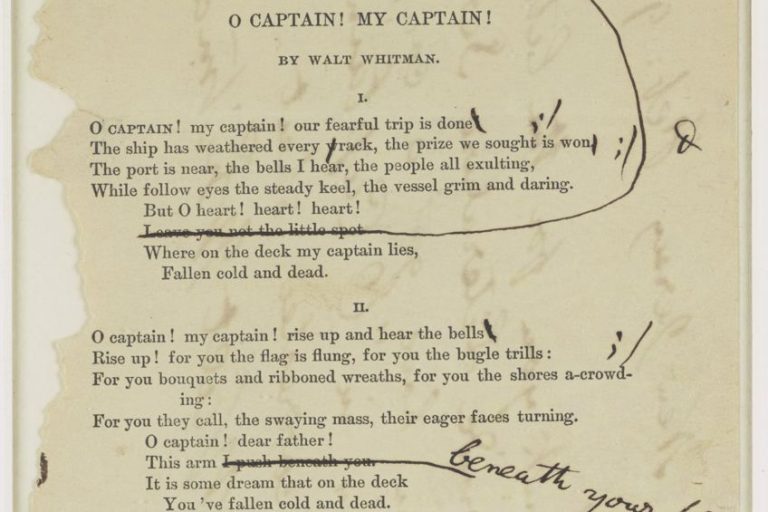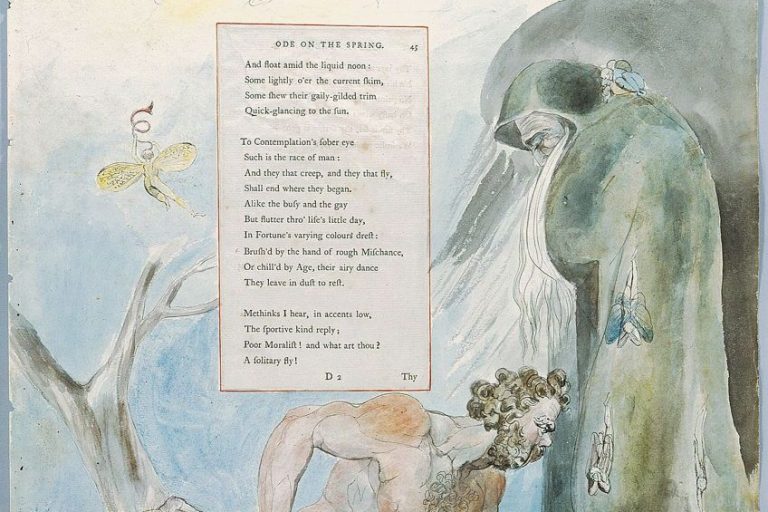How to Publish a Poem – An Easy Guide for New Poets
Today, we will look at how to publish a poem. This may seem like something rather simple, but it can be a difficult thing to accomplish, and it can require patience and perseverance. This article will discuss some of the places that accept submissions and the categories that those places fall into. This should be a more comprehensive look at how to publish a poem, and so, if that is something you wish to know, keep reading to learn more!
How to Publish a Poem
If you want to get published, you are in for a long and often rocky road. There’s no real point in sugarcoating things: it’s hard to get published. If you want to know how to publish a poem, we will explore the many ways in which you can do that, but you may be wondering what all a publisher actually does when they decide to accept your poetry for publication.

The purpose of a publisher is to prepare a text of whatever kind, as this also applies to prose publishers, and to try to get it into the hands of as many people as possible. This means that they need to prepare the text itself, and this can entail editing, typesetting, cover design (if it’s a collection), website and print costs, marketing, and so on. It is a long and arduous process, and it doesn’t stop once the text is out there. Constant marketing is part of the game, and it’s a lot to have to deal with on your own. This is why many turn to publishers, although we will also discuss going the self-publishing route below.
This article will examine various aspects of publishing poetry and how to publish a poem in the first place. However, something that should be a given, but will be stated here anyway. If you want to publish poetry or anything else, make sure that your work is done, in as good a state as it can possibly be in, and that it can be sent off at a moment’s notice. A publisher does not want to hear your idea for a poem, they want to see your poem. They want to publish it as soon as possible if they like it. They do not want to sit around with it. So, make sure it’s ready before you send it in. With that rather obvious part out of the way, let’s have a look at a variety of aspects of publishing poetry.
It can also be noted here that all of this applies to other parts of publishing too. There are a few differences when it comes to publishing prose, such as a novel, but the differences are mostly arbitrary.
The Places to Publish Poetry: Journals and Publishers
There are a variety of places that will allow you to send in your work to be assessed and possibly published, but it can be quite important to understand where to send your work, especially in the beginning. Getting published is often a long process, and many writers never manage to get published at all, and so it is best to be strategic with how you approach publishing a poem.

Literary Journals: A Good Place to Start
Literary journals represent some of the most common ways to get poetry out there into the world. Literary journals are also often the best place to start when you are trying to get your poetry published. However, it should always be remembered that there are many different types of literary journals, and they all operate in very different ways from one another. Many of them are larger and receive thousands upon thousands of submissions a week, and others are smaller and receive far fewer submissions.
It’s up to you to determine what kind of a journal you want to submit to. There are many smaller publishers who will take on unknown authors, and if you are able to get into any of these kinds of journals, you can use it as something of a curriculum vitae.
It is your writing portfolio, and through the development of your writing portfolio, you may find it easier to get published in other places.
For this reason, many young writers will start off by sending their work to small, independent literary journals so that they can get a foothold in the industry. Once a number of poems have been published, and a writing portfolio has been developed, the larger and more supposedly illustrious journals or publishers may be interested in your work. However, it should be noted that publishing poetry is not as large an industry as publishing prose.

Thanks to this, there are often fewer places, and especially larger places, that are willing to take poetry. Literary journals are numerous, and many of them are started as pet projects by reading lovers or writers, and these journals offer a way of publishing a poem while not requiring much from the poet. Although, it should be noted that some literary journals do require a fee of some kind, but many do not. We will discuss where you can find both varieties in a later section of this article.
Publishers: A More Traditional Approach
Publishers are often seen as the gold standard in the world of publishing poetry or anything else for that matter. However, it should be understood, right from the start, that publishers are often very particular when it comes to poetry. There are many major publishing houses that will not take poetry at all. Some of the biggest names in publishing expressly forbid the submission of poetry under any circumstances, and this can appear like there is no real place for the traditional publication of poetry.
This is not the case as there are actually many publishers that specifically focus on the publication of poetry. These poetry publishers are never as large as the prose publishers as there is, quite simply, less of a market for poetry than there is for prose. This is why publishing poetry in literary journals is often far more likely to lead to some results.
However, when it comes to how to publish a poem, a traditional publisher is often a tough nut to crack.
Many traditional publishers will not publish individual poems and will instead publish collections. However, to publish a collection, it can often be necessary to have already established a name for oneself. Many contemporary poets who manage to get published by traditional publishers have already achieved some level of fame online, such as through self-publication of poetry.
Poetry is, quite simply, less pervasive than it used to be. Poetry collections in bookstores will often feature old and famous poetry, and there is less room for contemporary poets. This makes getting poetry published through these more conventional means a difficult thing that will require perseverance. This does not mean that it is impossible, but rather that it requires investigating publishers and bookstores that specialize in the sale of poetry collections because otherwise, it’s unlikely that you’ll be publishing poetry all that easily.

Competitions: For the Challenge
When it comes to how to publish poetry, the realm of the competition can often be some of the most enticing opportunities. Competitions are often put on by publishers and literary journals, and these competitions allow for the widespread submission of poems. However, the sheer volume of poems that will be submitted during competitions does ensure that the likelihood of winning such a competition is often unlikely. The more people who submit, the harder it is for a poem to stand out.
This is the sad fact of a lot of the publishing industry. There are, quite simply, so many people who want to get published, so many poets who have great poems to show, but not enough people to actually see them. The production side of all literature, including poetry, far outweighs the audience that is meant to read it.
This means that competitions are, by their very nature, highly competitive.
If you send a poem into a competition, you will be competing against thousands of others who have also submitted. Perhaps your poem does resonate with the judge who happens to see it, and perhaps it becomes shortlisted and read by other judges, but competitions should be seen as something fun rather than a definitive way to get published. Getting published through a competition is probably harder than getting published through traditional avenues.
That being said, if you do write something great and you are lucky enough to be picked up by the judges in a competition, then this is a rather surefire way to get published. In addition, many major publishers sponsor competitions, and it’s not uncommon to see that one of the rewards for successfully winning a competition is a publishing contract with a traditional publisher. So, if you’re feeling competitive, then go for it!

Vanity Presses: Stay Away!
When it comes to publishing poetry and practically anything else in the world, there will always be those who see and understand how desperate so many people are to become writers. People want to be able to pursue their dreams, and there will always be opportunists who are more than happy to prey on people who are not as wise to the publishing world as others. This is where vanity presses come into the picture.
A vanity press is a surefire way to get published. Literally anyone can get published through a vanity press. The reason for this is because companies like this are happy to do everything that a publisher will do. They will edit your book, commission a cover, typeset it, market it, and so on. And they will do all of this… for a price.
This may seem to those who are unfamiliar with publishing like something completely normal. We all have to pay for things, don’t we?
That’s the nature of the world we live in. However, publishers do not make money off authors, they make money off the sale of books. This means that they are incentivized to take a percentage of what you make by selling your work, and the more of your work that they sell, the more they make. Essentially, traditional publishers make more money off of you the more successful you are, and this is why famous authors are heavily marketed because these companies can make more money off them.
Vanity presses do not operate this way. Instead, they shift the financial burden onto the author because they do not expect these books to sell. They expect the author to be willing to spend a lot of money to try and be a published author. When the way they make money is by selling services to writers rather than selling what a writer produces, you know that you have an opportunistic business snapping at your heels. For this reason, stay away from vanity presses!

A real publisher will not ask you to pay the costs of publication because they are supposed to take a percentage rather than making money off you. This is different from a small literary journal, which may ask for a few dollars for submission. That is perfectly fine and ethical, but a vanity press is one that may require you to pay thousands of dollars. So, if you see any charges coming your way, charge in the other direction and get out of there!
Where to Publish a Poem: Traditional or Independent
We have already discussed some of the ways that a writer may go about publishing a poem, but where should you go? Should you try and go the more traditional route? Should you try the independents?
Should you go at it alone? Let’s see.
Traditional Publishing: The Established Way
Traditional publishing is quite a loaded term. What exactly does it mean to be more “traditional?” In the publishing industry, we often refer to these publishers as the more established option. They have often been around for a very long time, and they are unlikely to go anywhere anytime soon. These publishers carry a certain prestige with them. If you get published by some major publisher, it can feel great. They can also generally get you the highest amount of money for your work.
The likelihood of being published by a traditional publisher of any description is far less likely. Traditional publishing, in terms of publishing poetry, can include established journals and larger publishers. Each of these institutions often gatekeep to a considerable degree. This is especially the case with publishers. Larger and more established literary journals are more likely to take on an unknown writer, but not necessarily.

While many larger publishers claim that they take on new authors, this is not very common. Instead, more traditional publishers often publish those who already have some level of fame attached to their name. It’s easier to market someone who is already famous than some random unknown person. This is why you’ll often see that celebrities get book deals very easily. It isn’t because they’re good writers, it’s because they’re famous.
To get published by a traditional publisher often requires a certain level of fame already. This is, for those who have figured this out, a catch-22 situation. It is the great millennial work problem. You cannot get published until you have already published some well-received stuff, but you cannot get published in a way that will allow your work to be seen by a lot of people without using a traditional publisher.
This is why many in the contemporary era prefer to go in the direction of independent publishing.
Independent Publishing: The Niche Way
There are a large number of independent publishing companies out there. Many of these independent publishers are literary journals that are run by one or a handful of people, and they likely don’t offer compensation for publishing poetry. They do not always make money from what they do, and they are instead motivated by an attempt to publish as much as they can through the avenues that they can muster.
You will not make as much money, if any, if you publish through a small, independent publisher, but it should be noted that there is not all that much money in publishing poetry, to begin with. Most write and publish poetry as a passion because it is not as marketable as prose unless it has some kind of a gimmick or weight behind it.

The upside of publishing through a smaller, independent publisher is that they do not usually require that you are already famous or that you have an agent. They will take you if your work is good, and this will likely appeal to those who have more meritocratic feelings. Many of these publishers are also inundated with far more submissions than they can easily handle, and so this is not a surefire way to get published, but it is easier than more traditional publishing methods.
It is also quite common that these kinds of publishers, if they are able to pay for publishing a poem, will pay more of a percentage of what they earn than large publishers. However, while you may be making more in percentage terms, it will not be more in real terms. An independent publisher may be making less profit off you, but they are also making less profit in general.
So, do not expect riches from publishing with a small company or journal.
Self-Publishing: Going Your Own Way
The last way that you could go is to put all your trust in yourself. You can publish your own work. Self-publishing is bigger than ever, and when it comes to the level of control that you have over your own work, you are the final decider. You can choose what is edited in which way, what is published, and so on. There is no one stopping you from producing and publishing the material that you want to publish.
When it comes to how to publish poetry, this is, by far, the “easiest” option. Places like Amazon, Kobo, Google Books, and Apple Books all allow for self-publication. Each of these platforms will take a percentage and the rest is yours. This means that if you were to become a bestseller, you would make more through self-publishing than you would if you were publishing through a traditional publisher. The likelihood of that is lower than it is with a traditional publisher though.

The complete control you have when self-publishing does also have a flip side though. It may mean that you can decide on everything and there’s no one to stop you, but it also means that you have to do everything yourself. This could mean learning the ins and outs of the publication process or paying others to do it. You will not have someone to do cover design, typesetting, printing, and so on, for you. You will have to do it yourself. Either that or pay up.
However, it is cheaper than ever to do all of this, and it can also be entirely free. If you can design your own covers, do your own typesetting, and publish through a place like Amazon, then you don’t actually have to spend a cent of your money. There are no upfront costs. Amazon even does printing on demand, and so your book could be printed without you ever needing to actually pay for printing.
Publishing as an ebook is even cheaper as there are literally no costs associated aside from those that you add.
Who Has Open Submissions: Some Possible Resources
How to publish a poem. That is a difficult thing. It can be hard to know where to go, where to turn, what to do, and so on. Where do you find the places where you can publish? Well, it will require some effort on your part if you want to publish poetry. Traditional publishers have easy-to-find websites, and they can be found through a cursory Google search, but as has already been discussed, traditional publishers do not publish many people.
So, where else can you go? Well, if you want to publish through a smaller, independent avenue, such as through a literary journal, then you need to get savvy. The thing is, if you want to publish your work, you need to be very specific. Journals have specific tastes and topics that they want to promote, and so if you write sad poetry, you can’t send it to a journal that wants optimistic stuff. This means that you will have to do some of your own searching.

This is where social media needs to be taken into account. Twitter and Reddit are some of the best places to find those who are publishing poetry. Hashtags can be used to find literary journals, which also often use hashtags like #litmag, #literarymagazine, and so on. These will allow you to easily identify them. Terms like #subsopen is another common tag that indicates which of these journals are actually actively looking for work to publish.
There are also numerous writers’ forums out there and organizations, like PEN International, that advertise competitions and places where writers can go to network. If you want to know how to publish a poem or any other form of writing, you need to be proactive. You need to search for these things and always submit when you have the chance. You never know when you could get picked up.
And so, we have arrived at the end of our examination of how to publish a poem. We have discussed a variety of places that accept poetry submissions, and the categories that they fall into in the publishing world. Hopefully, this has been a good primer to guide you on your way if you want to publish your poetry. Good luck if that is the case! It’ll be a hard road, but it’s a worthwhile one to try.
Frequently Asked Questions
What Is Poetry Publishing?
Poetry publishing is the act of preparing poetry for a wider audience. This involves the editing, cover design, printing, marketing, and so on, of poetry. Traditional poetry publishers make their money by selling the work of poets, and those poets then receive a percentage of the total sales.
What Are the Most Common Places to Submit Poetry?
While there are some larger publishers who do publish poetry, this is not all that common. Most publishers are instead focused on prose texts, and for this reason, many poets submit their poems to literary journals. These kinds of journals are the most common places in the contemporary era where poetry is published.
Can You Self-Publish Poetry?
Self-publishing is a readily accessible avenue for any poet who wants to publish their work. If self-publishing is chosen, it means that the usual gatekeeping that can be found in traditional publishing is completely absent. This means that you can publish whatever you want, but getting noticed when being self-published is significantly harder than going a more traditional route.
Justin van Huyssteen is a freelance writer, novelist, and academic originally from Cape Town, South Africa. At present, he has a bachelor’s degree in English and literary theory and an honor’s degree in literary theory. He is currently working towards his master’s degree in literary theory with a focus on animal studies, critical theory, and semiotics within literature. As a novelist and freelancer, he often writes under the pen name L.C. Lupus.
Justin’s preferred literary movements include modern and postmodern literature with literary fiction and genre fiction like sci-fi, post-apocalyptic, and horror being of particular interest. His academia extends to his interest in prose and narratology. He enjoys analyzing a variety of mediums through a literary lens, such as graphic novels, film, and video games.
Justin is working for artincontext.org as an author and content writer since 2022. He is responsible for all blog posts about architecture, literature and poetry.
Learn more about Justin van Huyssteen and the Art in Context Team.
Cite this Article
Justin, van Huyssteen, “How to Publish a Poem – An Easy Guide for New Poets.” Art in Context. September 14, 2023. URL: https://artincontext.org/how-to-publish-a-poem/
van Huyssteen, J. (2023, 14 September). How to Publish a Poem – An Easy Guide for New Poets. Art in Context. https://artincontext.org/how-to-publish-a-poem/
van Huyssteen, Justin. “How to Publish a Poem – An Easy Guide for New Poets.” Art in Context, September 14, 2023. https://artincontext.org/how-to-publish-a-poem/.









